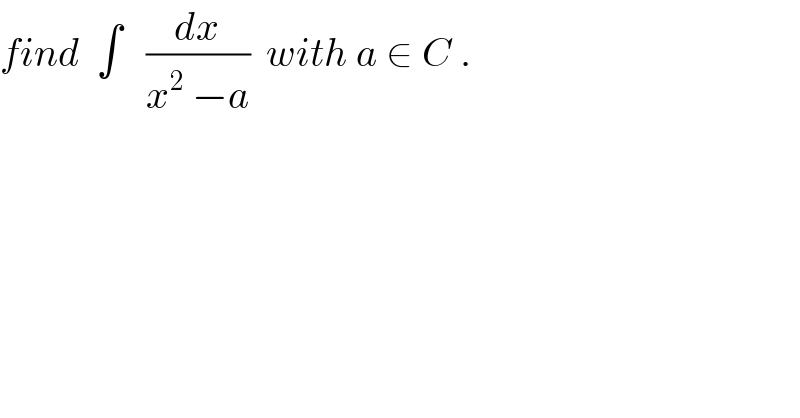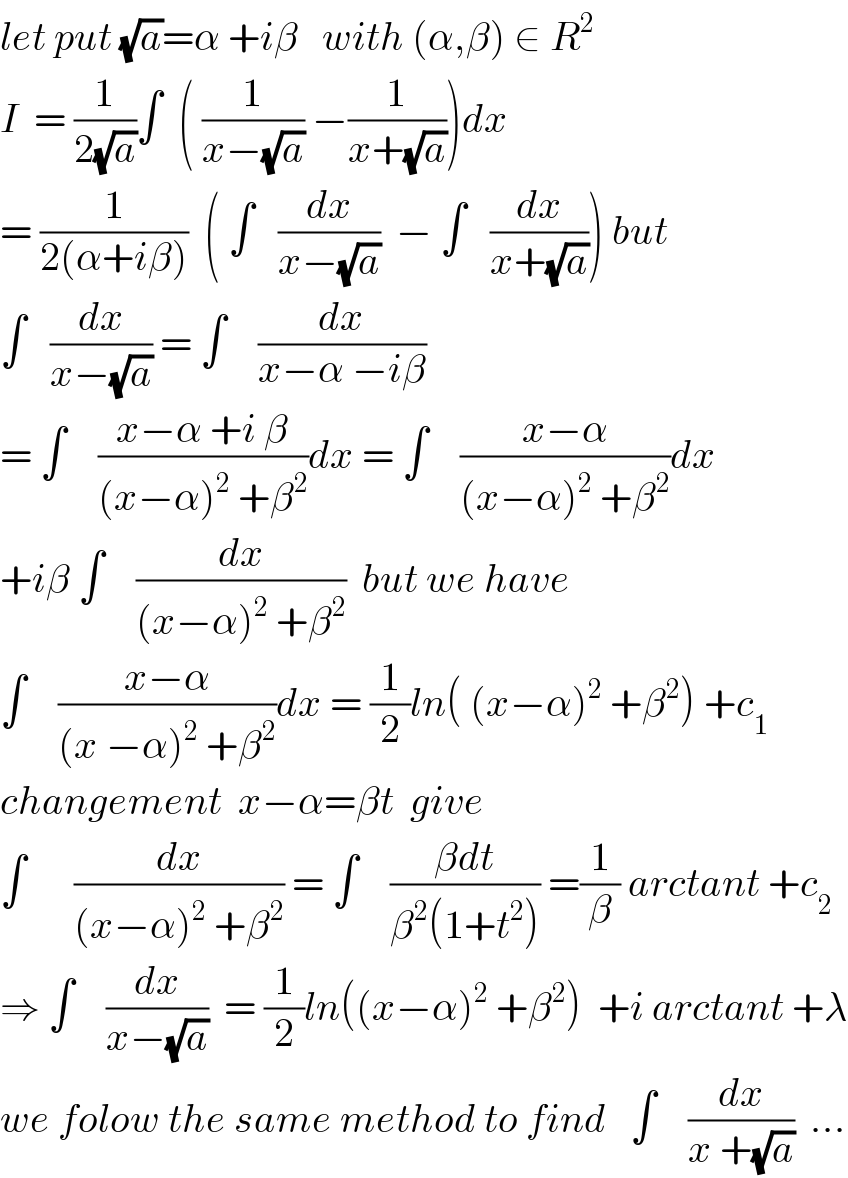Question Number 34237 by abdo mathsup 649 cc last updated on 03/May/18

Commented by Joel578 last updated on 04/May/18

Commented by abdo mathsup 649 cc last updated on 04/May/18

Commented by math khazana by abdo last updated on 04/May/18

Commented by abdo mathsup 649 cc last updated on 04/May/18

